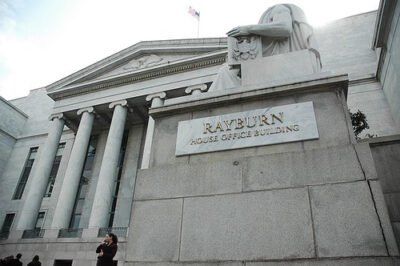Interior Enforcement

ICE, Local Governments Make Important Changes to Immigration Detainer Policies
Despite the ongoing controversy surrounding ICE’s Secure Communities program, there have been some recent positive developments on the issue of immigration detainers—a tool used by ICE and other DHS officials to identify potentially deportable individuals who are housed in jails or prisons nationwide. Local governments in New York, Illinois, California and now Washington D.C. have taken steps to limit their compliance with ICE detainers. Additionally, ICE has recently issued a new detainer form which provides more clarity to local law enforcement agencies. Read More

Criminal Alien Program (CAP)
Co-Plaintiffs American Immigration Council and AILA’s Connecticut chapter initially sought records related to the Criminal Alien Program (CAP) through a FOIA request to ICE in December 2011. When ICE refused to release responsive records, Plaintiffs filed suit under FOIA to compel their disclosure. Read More

DHS Shuts Down 287(g) Agreement with Maricopa County Following DOJ Investigation, Restricts Secure Communities
Today, the Secretary of the Department of Homeland Security (DHS), Janet Napolitano, announced that DHS will terminate its 287(g) agreement with the Maricopa County Sheriff’s Office and restrict access to the Secure Communities program, following damaging findings released by the Department of Justice (DOJ). After a three year long civil rights investigation into the Maricopa County Sheriff’s Office (MCSO)—an office led by America’s “toughest sheriff” Joe Arpaio—the DOJ announced today that it had “reasonable cause” to believe the Sheriff’s Office has “engaged in a pattern or practice of misconduct that violates the Constitution and federal law.” Read More

House Subcommittee Hearing Underscores Problems with Secure Communities Program
Congressman Steve King (R-IA), Subcommittee on Immigration Policy & Enforcement. Today, the House Immigration Subcommittee held a hearing on the Secure Communities program (S-Comm)—an enforcement program that has been rife with controversy since its inception in 2008. Today’s hearing featured statements from a variety of witnesses and members of Congress which further underscored the problems inherent with the program and immigration enforcement in general. S-Comm is currently active in more than 1,700 jurisdictions and is on target to be nationwide by 2013. Read More

The Secure Communities Program: Unanswered Questions and Continuing Concerns
This paper describes the Secure Communities program, identifies concerns about the program’s design and implementation, and makes recommendations for the future of the program. Read More

Secure Communities: A Fact Sheet
The Secure Communities Program, which launched in March 2008, has been held out as a simplified model for state and local cooperation with federal immigration enforcement. This fact sheet lays out the basics of Secure Communities program, how it works, key areas of concern and recommendations on how to improve the program. Read More

DHS Issues Awaited Guidance on Prioritizing Deportations, Law Enforcement Letter Praises Approach
Washington D.C. – Today, Immigration and Customs Enforcement’s (ICE) Principal Legal Advisor directed all ICE attorneys to begin a systematic review of immigration cases to determine whether pursuing deportation in each case is consistent with the Administration’s enforcement priorities. This directive follows last summer’s announcement that the Department of Homeland… Read More

AILA-AIC Survey Reveals ICE Officials’ Sporadic Exercise of Prosecutorial Discretion
Washington, DC – The American Immigration Lawyers Association (AILA) and the American Immigration Council (AIC) released a new survey today finding that Immigration and Customs Enforcement (ICE) officers and attorneys across the country are applying different standards on prosecutorial discretion despite the issuance of national policy memoranda this summer. Read More

New Data Highlights Devastating Impact of Secure Communities on Immigrant and Latino Communities
New data on the Immigration and Customs Enforcement’s (ICE) controversial Secure Communities reveals the program’s devastating impact on immigrants, Latinos and U.S. citizens. Released by the Warren Institute at Berkeley Law School, the report, “Secure Communities by the Numbers,” examines the profile of individuals who have been apprehended through the program and funneled through the system. The results are startling. Many communities, in fact, are questioning their level of cooperation with the government on certain aspects of this flawed enforcement program. Read More

Turning Off the Water: How the Contracting and Transaction Provisions in Alabama’s Immigration Law Make Life Harder
Turning Off the Water: How the Contracting and Transaction Provisions in Alabama's Immigration Law Make Life Harder For EveryoneBy Joan Friedland Since passage of HB 56, Alabama’s extreme new immigration law, many are aware of the most immediate consequences of the law—rotting tomatoes, racial profiling, and frightened school children. However, two provisions of the law that have the potential to be extremely damaging to the state’s economy, rule of law, and municipal functioning have received comparatively little attention. These two provisions have been in effect since September 30,, 2011, and are likely to result in an increase of exploitation of workers, erosion of fundamental legal protections, and denial of access to state and local government services and activities. In other words, these provisions will undoubtedly impact the daily lives of all Alabamians. Read More
Make a contribution
Make a direct impact on the lives of immigrants.
